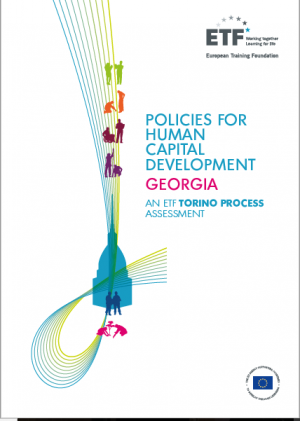The European Training Foundation (ETF) assessment provides an external, forward-looking analysis of the country's human capital development issues and vocational education and training (VET) policy responses from a lifelong learning perspective. It identifies challenges related to education and training policy and practice that hinder the development and use of human capital. It takes stock of these challenges and puts forward recommendations on possible solutions to address them.
These assessments are a key deliverable of the Torino Process, an initiative launched by the ETF in 2010 aimed at providing a periodic review of VET systems in the wider context of human capital development and inclusive economic growth. In providing a high-quality assessment of VET policy from a lifelong learning perspective, the process builds on four key principles: ownership, participation, holistic and evidence-based analysis.
The ETF interprets human capital development as the provision of support to countries for the creation of lifelong learning systems. These systems in turn provide opportunities and incentives for people to develop their skills, competences, knowledge and attitudes throughout their lives so that they can find employment, realise their potential and contribute to prosperous, innovative and inclusive societies.
The purpose of the assessments is to provide a reliable source of information for planning and monitoring national education and training policies for human capital development in the relevant countries. The assessments are also intended to be basis for policy dialogue between the countries and the European Union (EU) and other donors, and for the design of their support programmes.
The ETF assessments rely on evidence collected from the countries using a standardised reporting template (national reporting framework) through a participatory process involving a wide variety of actors. Besides, this report uses other available information and data from existing resources and studies after an extensive desk research. The country has a high degree of ownership of the assessment. The findings and recommendations of the ETF assessment have been shared and discussed with national authorities and beneficiaries.
This report starts with a brief description of Georgia's strategic plans and national policy priorities (Section 1). It then presents an overview of issues related to the development and use of human capital in the country (Section 2), before moving on to an in-depth discussion of problems in this area, which, in the view of the ETF, require immediate attention (Section 3). Section 4 provides the overall conclusions of the analysis. The annexes provide additional information: a summary of the recommendations in the report (Annex 1) and an overview of the education and training system in Georgia (Annex 2).
The ETF would like to thank all the members of the Torino Process consultation team in Georgia who worked on the preparation of the national Torino Process report. Particular thanks should be extended to the Ministry of Education, Science, Culture and Sport (MoESCS) and National Statistics Office of Georgia, which provided timely updated information and data on the VET system and the labour force survey results respectively. The national Torino Process report compiled by the country itself can be found here: https://openspace.etf.europa.eu/trp/torino-process-2018-2020-georgia-national-report
